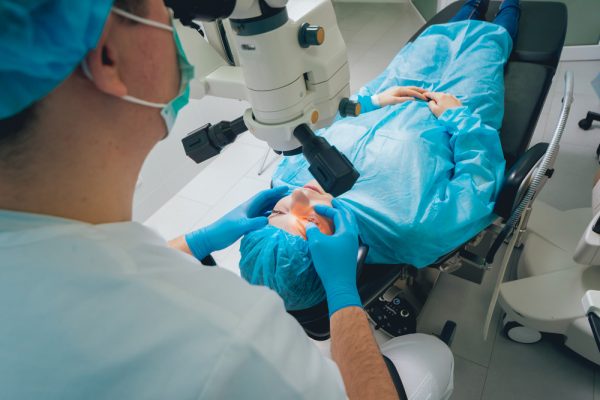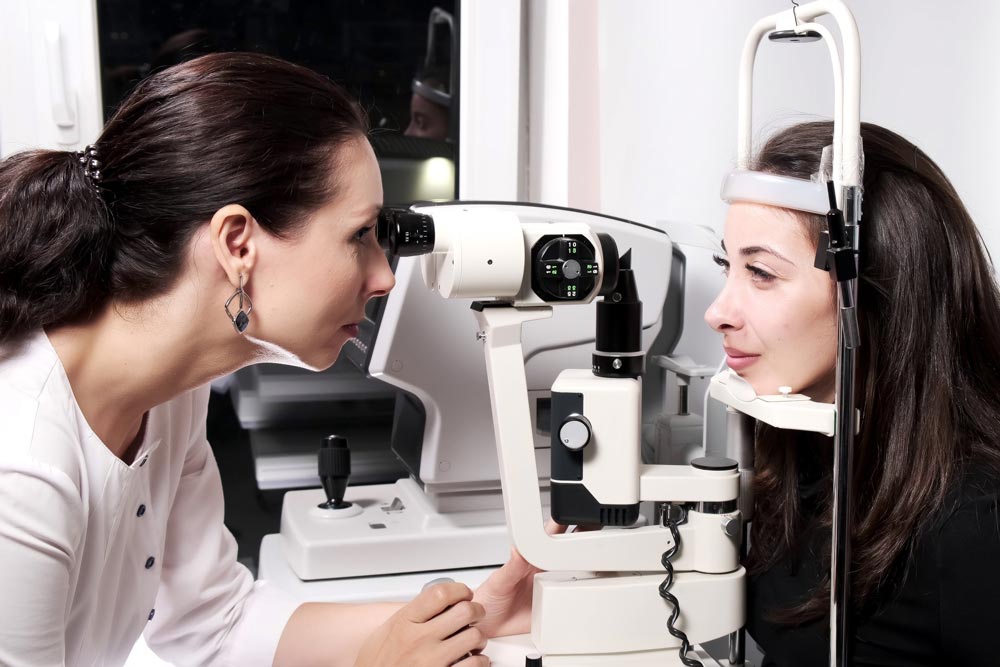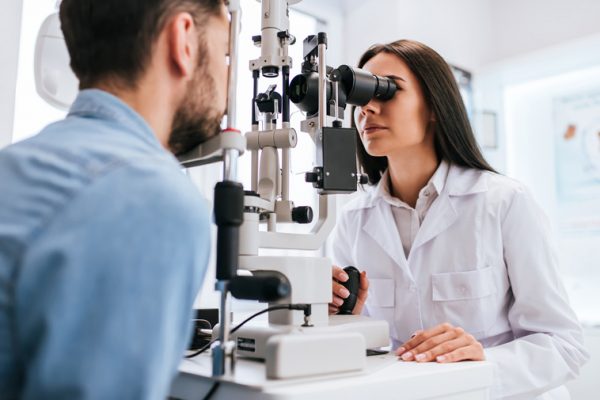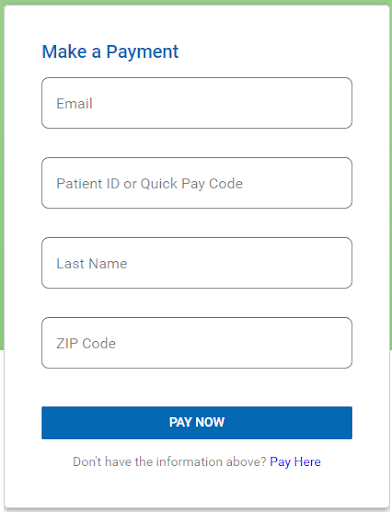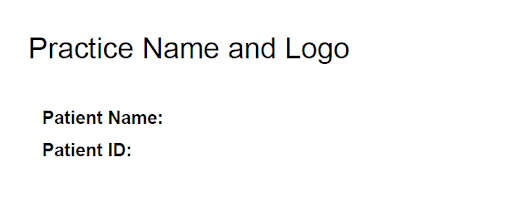Retinal Conditions & Diseases
Retina Diseases: Symptoms & Causes
Retinal conditions affect the back of your eye, where the retina converts light into visual information. A healthy eye will send this information to the brain via your eye’s optic nerve. Retina problems can disrupt this process and cause visual complications, such as blindness.
It’s important to catch retinal conditions early. Early diagnosis increases your treatment options and raises recovery rates. Some conditions can be cured, while others can only be managed. Failing to treat a retinal condition may lead to permanent vision loss, making regular eye exams essential for at-risk patients.
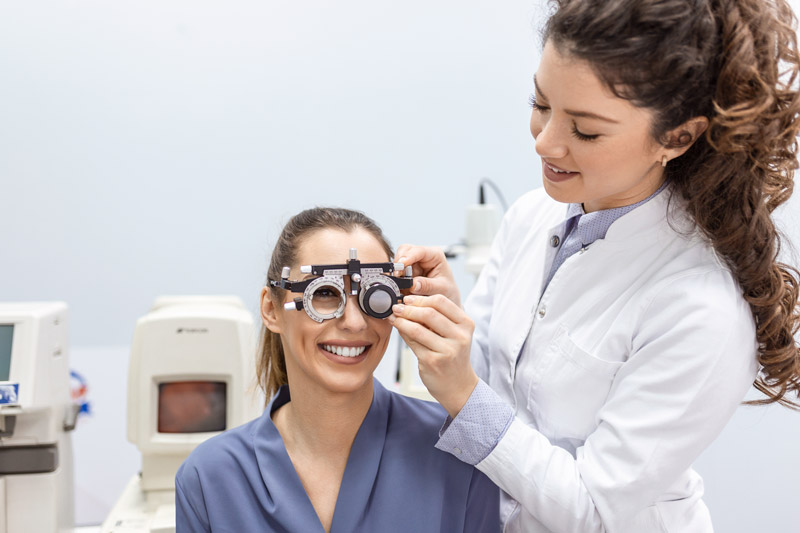
Anatomy and Function of the Retina
The retina is a tissue layer in the back of your eye. It contains several unique parts, such as rods, cones, the macula, and the optic nerve. It is one of the eye’s most important components, sending visual information to the brain to create an image.
Millions of light-detecting cells, known as rods and cones, help the retina receive and process light. Once this light passes through the macula, the optic nerve sends signals to the brain. The macula is responsible for your central vision, so diseases affecting the retina can disrupt or damage your sight.
6 Common Retinal Conditions & Causes
Retinal tears and holes may be caused by aging, eye trauma, nearsightedness, genetic predisposition, or posterior vitreous detachment (PVD). PVD occurs when the natural gel inside your eye separates from the retina. Tears and holes can cause sudden retina problems like floaters, flashes of light, and blurred vision.
If these symptoms go untreated, you may suffer retinal detachment, followed by blindness. Common treatments include laser surgery and cryotherapy, which uses extreme cold to re-seal the retina.
Retinal detachment occurs when too much fluid accumulates under the retina. This fluid severs the retina’s blood supply, rendering it unable to function. Retinal detachment often results from retinal tears, eye trauma, diabetes, and severe myopia (also known as nearsightedness).
Symptoms include sudden loss of peripheral vision, constant flashes of light, and a curtain-like shadow over vision. Without proper care, retinal detachment can lead to permanent vision loss. The severity of retinal detachment varies by person, so it is important to consult your eye doctor before opting for treatment.
Treatments include scleral buckle surgery, vitrectomy, and pneumatic retinopexy.
Diabetic retinopathy is a retinal disease affecting patients with diabetes and high blood sugar. Diabetes weakens red blood cells throughout the body, including in the retina. When blood vessels are damaged inside the retina, they leak blood and other fluids. This makes the retina swell up.
This swelling leads to blurred vision, floaters, and progressive vision loss. Diabetic retinopathy affects about 33% of patients with diabetes, but early treatment helps nearly every patient recover.
If you have diabetes, we recommend scheduling an annual eye exam. This exam can diagnose diabetic retinopathy and help your eye doctor create a proper recovery plan. You may be prescribed lifestyle changes, vitamin supplements, or injections.
Macular holes and macular puckers affect the retina’s central vision component, the macula. These retinal conditions usually form after the following:
- Eye trauma
- Retinal tears or detachment
- Excess friction between the retina and vitreous gel
- Intraocular inflammation
Macular holes and macular puckers are typically treated through a vitrectomy procedure, where vitreous humor is drained from the eye.
Retinitis pigmentosa belongs to the family of genetic retinal diseases. This disease worsens by mutating, so its progression rate is unpredictable. Some patients suffer its effects early in life, while others are not affected until they are 50 or older.
Retinitis pigmentosa causes night blindness, tunnel vision, and progressive vision loss. No cure has been developed, but most patients opt for low-vision aids to increase their quality of life.
Blood clots, high blood pressure, and diabetes can block the vein draining blood from the retina. If blood cannot easily flow from the retina, it builds up and causes sudden vision loss. This loss ranges from dark spots to total blindness.
Treatments for retinal vein occlusion include anti-VEGF injections and laser therapy. Anti-VEGF injections reduce abnormal blood vessel growth and regulate swelling. Laser therapy is used for long-lasting solutions, when necessary.
Symptoms of Retinal Diseases
Most retinal diseases share a similar group of symptoms. If you are experiencing any of the following, we recommend scheduling an eye exam immediately:
- Floaters of flashes of light
- Blurred or distorted vision
- Sudden vision loss or dark spots
- Difficulty seeing at night
- Loss of peripheral or central vision
Risk Factors and Prevention Strategies
As with most diseases, certain populations are at higher risk of developing retinal conditions than others. Risk factors include:
- Old age
- Genetic predisposition
- Smoking
- Diabetes
- Obesity
- Hypertension
Risk factors like age and genetics cannot be altered with lifestyle changes, but you can catch retinal conditions early by scheduling regular eye exams. Other risk factors like smoking and obesity can be addressed by making healthy choices and increasing exercise.
Making smart choices for your overall health often benefits your eyes. When you manage chronic conditions like diabetes and wear proper eyewear in dangerous environments, you reduce the risk of developing long-term vision issues. If you’re unsure how to reduce your risk of developing retinal conditions, schedule an appointment with your eye doctor. They will be happy to help you create a personal eye care plan.
Diagnosis of Retinal Conditions
Most retinal diseases are first discovered during a comprehensive eye exam. During this test, your eyes are dilated, allowing your eye doctor to see the entirety of your eye. If your doctor notices abnormalities in your retina, they will perform specific tests or refer you to a specialist.
Further testing might include:
- Optical coherence tomography, which uses reflected light to examine the back of your eye.
- Fluorescein angiography, which reveals blood flow in the retina by injecting fluorescent dye.
- Fundus autofluorescence, a non-invasive method for creating images of your retina.
- Electroretinography, measuring how well the retina processes and organizes light.
- Blood tests, which can reveal inherited retinal conditions.
Treatment Options for Retinal Conditions
Medications & Injections
Anti-VEGF injections are commonly used to treat macular degeneration and diabetic retinopathy. These injections reduce retinal swelling and prevent abnormal blood vessels from causing blood clots in the retina.
Laser Treatments
Laser therapy is intended for long-term solutions, whereas medications and injections are short-term treatments. Laser therapy often treats retinal tears, diabetic retinopathy, and macular edema.
Surgical Treatments
There are various surgeries for retina problems. Examples include:
- Vitrectomy, a procedure that removes vitreous fluid from your eye.
- Scleral buckle surgery, in which a surgeon indents your sclera by attaching a silicone component outside your eye.
- Pneumatic retinopexy, which addresses retinal detachment by injecting a gas bubble in your eye.
Vision Rehabilitation & Low-Vision Aids
Magnifiers and other adaptive technologies are used to reduce the effects of irreversible vision loss.
When to Seek Medical Attention
Retinal conditions can sometimes be confused with everyday fluctuations in vision. How do you know when to schedule a comprehensive eye exam? We recommend seeing your eye doctor if you experience any of the following retina problems:
- Sudden onset of vision changes
- Persistent floaters or flashes
- Worsening blurry or distorted vision
- Any signs of eye trauma or injury
Some retinal conditions are medical emergencies, so don’t wait to schedule an appointment. The sooner you address eye problems, the more likely you are to successfully recover.
Midwest Vision Partners works with more than 140 eye doctors across the Midwest. Our partners are some of the brightest in their field and use cutting-edge treatments to help patients like you recover from serious retinal diseases.
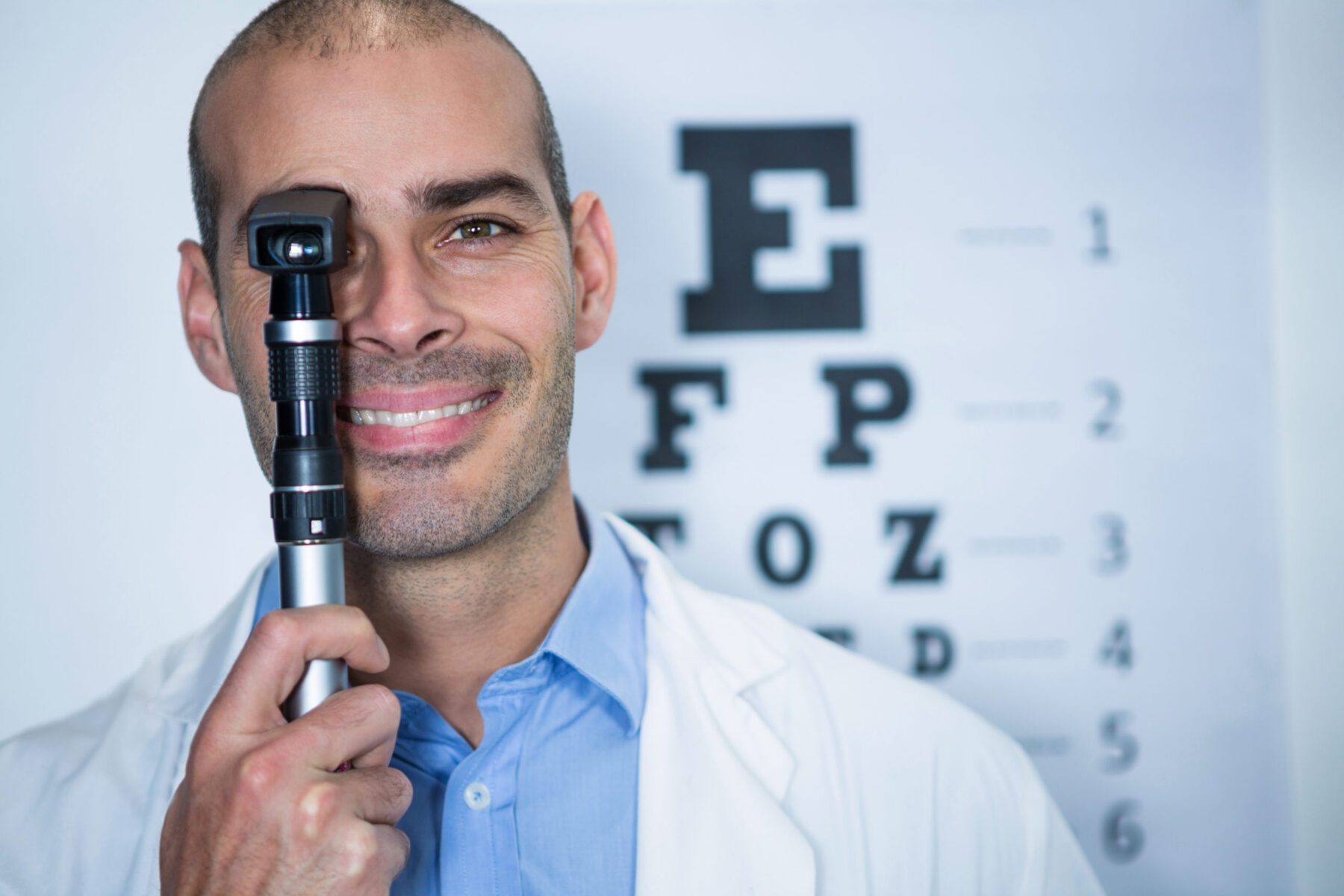
Related Services
If your doctor discovers a small hole in your macula, they may recommend macular hold surgery to correct it. Find out more.
Treatment for glaucoma is vital to preserving your vision for as long as possible. As the leading cause of blindness in people over 60, it cannot be ignored.
Let's Get Started
When It Comes To Eye Health, We’re Your MVP



